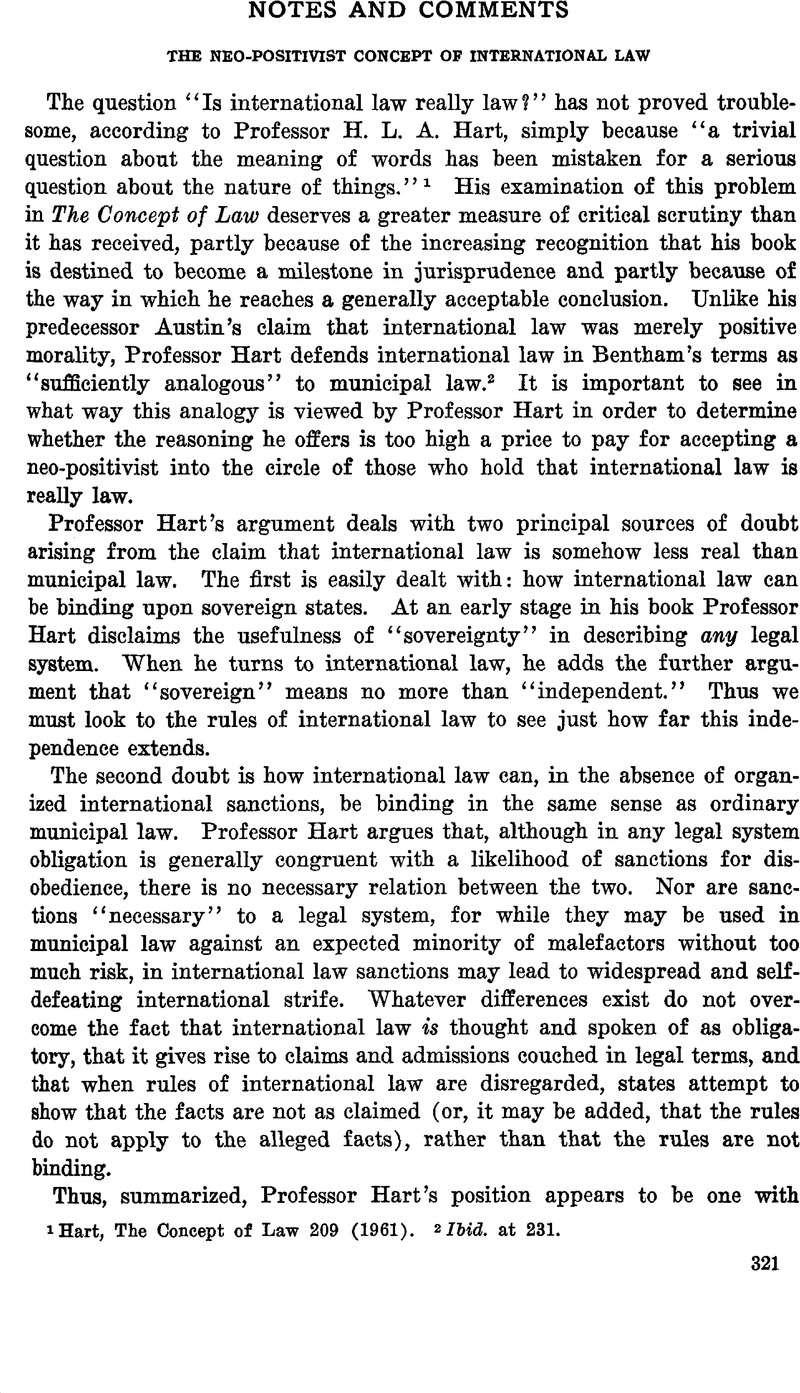Article contents
The Neo-Positivist Concept of International Law
Published online by Cambridge University Press: 28 March 2017
Abstract

- Type
- Notes and Comments
- Information
- Copyright
- Copyright © American Society of International Law 1965
References
1 Hart, The Concept of Law 209 (1961).
2 Ibid, at 231.
3 In making this claim, Professor Hart is aware of the theories advanced for a “basic norm” in international law. Of the two serious candidates, pacta aunt servanda does not account for all obligations under international law, however widely the term “pacta” is construed, while the rule that “States should behave as they customarily behave” says nothing more than that “those who accept certain rules must also observe a rule that the rules ought to be observed,” which is only another way of saying that these rules are accepted as binding.
4 Fuller, The Morality of Law 137-138 (1964). The author is indebted to Professor Fuller for showing him this work in progress. Although not addressed to the problem of international law, Professor Fuller's book in its entirety takes cogent issue with Professor Hart's insistence on the separation of law and morality.
- 8
- Cited by




